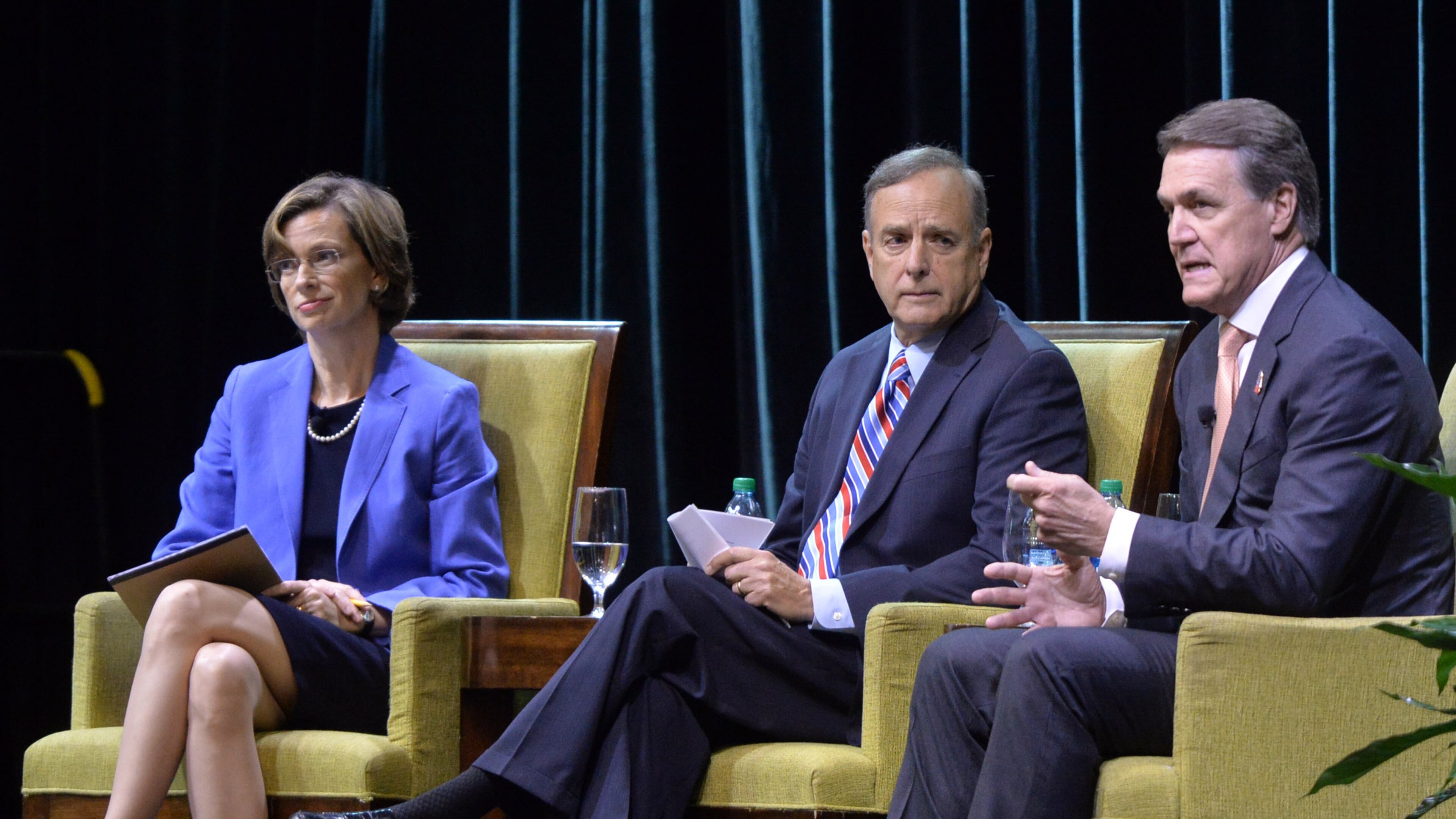Why your Christmas cards might contain campaign flyers

Even as the Braves' dreams of October grow slimmer and slimmer, the odds are increasing that Georgia's hot races for governor and the U.S. Senate will see post-season play.
In fact, the 2014 election season may not be settled until 2015.
Which means the 436th television presentation of “A Charlie Brown Christmas” could be brought to you by the folks from “Michelle Nunn Is a Friend to Terrorists,” or “David Perdue Is a Woman-Hating Oligarch.”
Happy holidays, people.
Several September polls, including one by this newspaper, vary widely but agree on two things: No candidate in the races for governor or U.S. Senate has a firm grip on the 50 percent mark needed to avoid a runoff. And the contest between Republican incumbent Gov. Nathan Deal and Democrat Jason Carter is tighter than the Nunn-Perdue race for U.S. Senate.
Historically, Republicans have fared better in Georgia runoffs. It appears to be largely a matter of age. Older Georgians, who lean toward the GOP, are the more reliable voters on the first Tuesday after Thanksgiving.
Their demographics probably align with those who finish their Christmas shopping before Black Friday.
Race is a factor. In the 2008 U.S. Senate runoff between Democrat Jim Martin and Republican incumbent Saxby Chambliss, African-Americans made up 24 percent of the electorate, according to Democratic calculations – down four points from the general election.
That year, Chambliss won his runoff with 57 percent of the vote.
But a wrench has been thrown into the 2014 works that is forcing all players to recalculate their runoff strategies. And regardless of what they say in public, Perdue, Nunn, Deal and Carter are all developing them.
A runoff for governor would be held in its traditional spot, Dec. 2.
But a U.S. District Court judge, concerned only with federal races, has ordered a longer period between the two U.S. Senate votes, to allow for overseas balloting. A Georgia runoff to replace Chambliss would be Jan. 6, three days after Congress is set to convene.
Leadership in the Senate might already have been decided – or could hang in the balance. If the latter, millions of dollars from both camps would continue to flow into Georgia through the holidays.
A nine-week respite would presumably give Nunn a chance to organize and rally her Democratic troops, erasing the edge Perdue and his Republican forces would have in a hurry-up runoff.
Also remember that one party’s morale will have been demolished — or boosted — a month earlier, in the race for governor.
Carter, the Democrat, would be in danger of being orphaned by a separated runoff. He has proven himself an accomplished fundraiser, but could suffer financially as national attention shifts to January.
The grandson of the former president would gain one advantage. With the U.S. Senate race stripped away, a gubernatorial runoff would become less ideological. The Republican incumbent would become the primary focus. But the fact that GOP control of the state patronage machine would be hanging in the balance should provide Republicans with fierce motivation. Advantage: Deal.
Yet there is one more moving part that needs to be contemplated.
On the long drive home the other night, Michael Jablonski called back. He’s the legal counsel for the Democratic Party of Georgia.
Jablonski confirmed that he had been asked to evaluate the possibility of a lawsuit aimed at forcing a delay in a Dec. 2 runoff for governor, and aligning it with the U.S. Senate runoff on Jan. 6. But the lawyer zipped his lips when asked what his recommendation had been.
Counties certainly would appreciate the savings associated with holding one election rather than two. But that won’t move a judge.
No, for a convincing argument, Democrats would need to find a soldier in Afghanistan or some other remote station, and put that name to the lawsuit. Someone who would really, really want to vote in a Georgia runoff for governor, but feared that his or her ballot wouldn’t have time to make the round trip in the 29 days allotted.
We won’t know until Nov. 5, Election Day plus one, whether Democrats will look for Christmas in January.
But that, Charlie Brown, is what election season is all about.

